Tags
Alfonso Cuaron, Anne Hathaway, Christopher Nolan, George Clooney, Gravity, Gravity Movie Review, Gravity Review, Gravity vs Interstellar, Interstellar, Interstellar Movie Review, Interstellar Review, Interstellar vs Gravity, Jessica Chastain, John Lithgow, Mackenzie Foy, Matt Damon, Matthew McConaughey, Michael Caine, Sandra Bullock
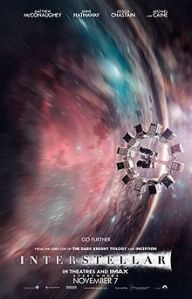 For the past few months, Christopher Nolan‘s space epic “Interstellar” has been highly buzzed about, but a lot of us were wondering how the film would stack up to last years Oscar winning “Gravity” directed by Alfonso Cuaron. The comparisons are natural, they are two highly acclaimed Directors’ take on space travel with Oscar winning actors and huge budgets. That’s where the comparisons end though, because both writer/directors take drastically different approaches, and one succeeded and one failed. Proving that in most cases, simplicity is the best policy.
For the past few months, Christopher Nolan‘s space epic “Interstellar” has been highly buzzed about, but a lot of us were wondering how the film would stack up to last years Oscar winning “Gravity” directed by Alfonso Cuaron. The comparisons are natural, they are two highly acclaimed Directors’ take on space travel with Oscar winning actors and huge budgets. That’s where the comparisons end though, because both writer/directors take drastically different approaches, and one succeeded and one failed. Proving that in most cases, simplicity is the best policy. 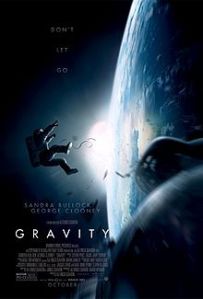
“Interstellar” is set in a depressing dust-laden future where the world’s population is small, and the food supply is even smaller. It’s a bleek world, and seemingly nobody has any solutions to any of the problems, and are basically ready to become extinct. The movie focuses on Coop (Matthew McConaughey), a former NASA pilot, and his small family of two children and father in-law. Coop, with the help of his 10 year old daughter Murph (Mackenzie Foy), happen upon coordinates that lead them to a hidden NASA station, and it just so happens that they need Coop to pilot a crew through a black hole to find a planet that the surviving humans can migrate to.
He accepts the challenge, and… well… space travel ensues. The crew flies to two planets and lose members, patience, and fuel along the way. While Coop is away, years fly by on Earth and his children age to the point where his son has his own family and his daughter (now played by Jessica Chastain) is working at NASA trying to help Professor Brand (Michael Caine) figure out a way to save earth, while still resenting her father for leaving the family to go on the mission.
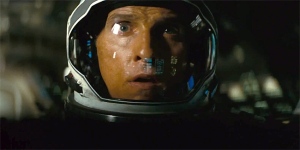 Ultimately we find out that lies had been told, we find a lonely and conniving pilot from a previous mission (Matt Damon), there are fights, talks of love and family, talking robots and fifth dimensions.
Ultimately we find out that lies had been told, we find a lonely and conniving pilot from a previous mission (Matt Damon), there are fights, talks of love and family, talking robots and fifth dimensions.
“Interstellar” has it’s bits of intrigue, but overall it’s a movie that focuses more on the science then storytelling or character development. My biggest problem with the movie was that nearly all of the characters were so cliche and cookie-cutter, McConaughey’s Coop might as well have added a “yeee-haw” at the end of every line because he was such the charming-cowboy-hero cliche. Same with Anne Hathaway‘s brooding Brand, John Lithgow‘s cautious Grandpa and Foy’s precocious young Murph. None of the characters had any real depth or personality, so it was hard to really care for any of them. It’s really bad when the character with the most interesting and likable personality was TARS, the robot!
Overall, the writing of this movie failed. Not only were the characters terribly uninspired, but a lot of the dialogue came off as either extremely corny (Hathaway’s “love transcending space and time” speech) or way too technical. My assumption is that Christopher Nolan did some extensive research about space travel and time and gravity and alternate dimensions. He wanted to cram all he learned about all of this in the movie, and didn’t bother to take the time to write good characters that the audience would care about. The result being that the movie ended, and I didn’t care about anyone or anything at all.
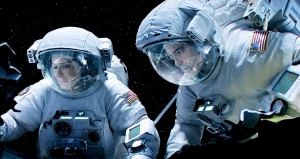 The end of “Gravity”, for me, was the total opposite. Before I get into it, I saw the movie on opening day last year and was blown away, but never devoted a blog post about it. Alfonso Cuaron’s film opens with Kowalski (George Clooney) and Ryan Stone (Sandra Bullock), she is a doctor who has been sent to space for the first time to upgrade the ships hubble telescope. Before we know it, a cloud of debris wrecks their ship and kills the remaining crew, leaving those two to fend for themselves in space. Soon after this, Stone is all alone and we follow the space novice from one disaster to another as she finds the strength to survive and get home.
The end of “Gravity”, for me, was the total opposite. Before I get into it, I saw the movie on opening day last year and was blown away, but never devoted a blog post about it. Alfonso Cuaron’s film opens with Kowalski (George Clooney) and Ryan Stone (Sandra Bullock), she is a doctor who has been sent to space for the first time to upgrade the ships hubble telescope. Before we know it, a cloud of debris wrecks their ship and kills the remaining crew, leaving those two to fend for themselves in space. Soon after this, Stone is all alone and we follow the space novice from one disaster to another as she finds the strength to survive and get home.
“Gravity” wins for a bunch of reasons, the suspense is especially intriguing as the viewer is on the edge of their seat through all of Stone’s perils that seem to come one after the other. The whole concept of being lost in space is a scary one, and Cuaron handles that mood expertly. Having the movie follow just the one character put us in her shoes, so the audience is basically trapped in space with her and we feel the terror and anxiety she feels.
The direction and cinematography of “Gravity” were also amazing, Cuaron did things that were so visually appealing, inventive and incredibly skilled. Certain shots and effects were so great because it felt like nothing we had ever seen before. The performances were also great, as Bullock’s fear and hopelessness and strength are all well felt, and Clooney’s short role was incredibly charming and a very strong presence that lasted until the end. The score of the film was also phenomenal in amping up the emotion and suspense.
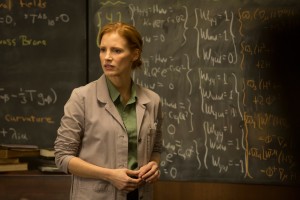 Ultimately though, what makes “Gravity” that much more of a success than “Interstellar” is that Cuaron understood the concept of keeping it simple. Nolan, like I said before, seemed to invest way more into the science talk that it complicated the flow of the movie. We all aren’t science majors, and he shouldn’t have assumed that the viewers would understand all the technical dialogue (which, by the way, some important conversations were drowned out by the over-powering score).
Ultimately though, what makes “Gravity” that much more of a success than “Interstellar” is that Cuaron understood the concept of keeping it simple. Nolan, like I said before, seemed to invest way more into the science talk that it complicated the flow of the movie. We all aren’t science majors, and he shouldn’t have assumed that the viewers would understand all the technical dialogue (which, by the way, some important conversations were drowned out by the over-powering score).
“Gravity” was simplistic in that we followed one character, a character who has a limited knowledge of space travel (like most movie-goers) and is only focused on survival. A simple concept that is easy to follow. And being able to relate makes the emotional archs more powerful, if we don’t care or understand the characters we don’t care about what happens to them (I should add that the futuristic aspect of “Interstellar” was also something that made it hard for viewers to really relate, because it’s hard to imagine the dynamics of their future.) Thus Bullock’s ‘barking’ scene was much more powerful than any one of the MANY scenes where McConaughey broke down crying. 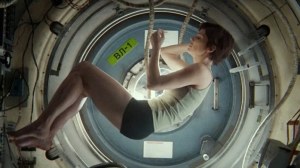
“Gravity” was also a lot more daring and inventive when it came to it’s effects and shots and writing, while I felt a lot of the supposedly awe-inspiring moments of “Interstellar” felt a little dated (for instance, the huge waves on the first planet they reached, that totally reminded me of 1989’s “The Abyss”). “Interstellar” just didn’t excite me, and that’s mostly because it was bogged down with the space talk and “Gravity” was just more a human story. So ultimately, what I’m saying is, K.I.S.S. (Keep It Simple Stupid!).

Thats funny because the whole time all I wanted was for Sandra Bullock to die the whole movies. After hearing 2 full hours of her whining and screaming, I didn’t care what the hell happened to her.